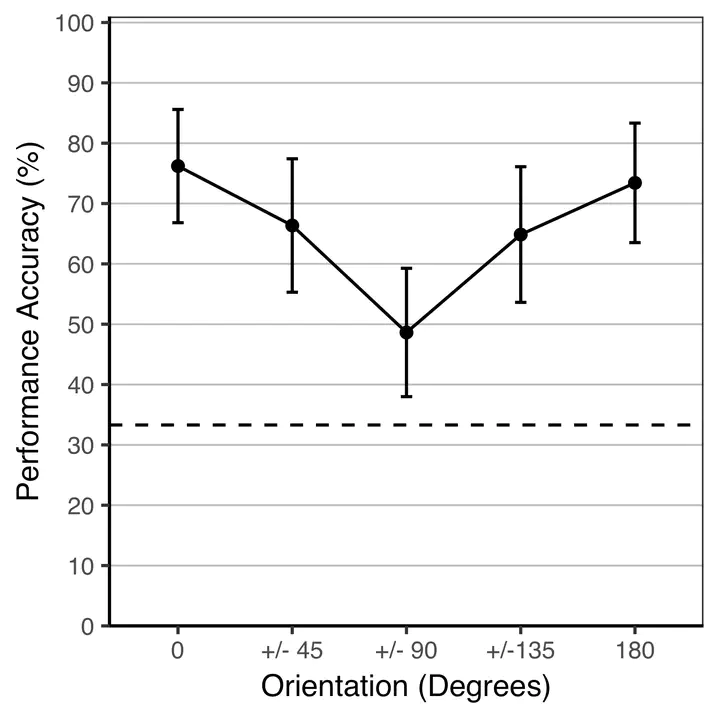Visual perception in bottlenose dolphins (Tursiops truncatus): Successful recognition of 2-D objects rotated in the picture and depth planes
 The performance accuracy of the dolphin for each orientation of the sample object shown for the depth plane rotation test. Accuracies are shown along with 95% simultaneous Tukey-adjusted confidence intervals. Chance performance of 33.3% is shown as a dashed line.
The performance accuracy of the dolphin for each orientation of the sample object shown for the depth plane rotation test. Accuracies are shown along with 95% simultaneous Tukey-adjusted confidence intervals. Chance performance of 33.3% is shown as a dashed line.Abstract
Aquatic species such as bottlenose dolphins can move in 3 dimensions and frequently view objects from different orientations. This study examined their ability to identify 2-D objects visually despite changes in orientation across 2 rotation planes. A dolphin performed a matching-to-sample task in which a sample was presented at a different orientation from its match in a 3-alternative choice array. Samples were presented at 6 aspect angles in the picture plane (0°, ±45°, ±135°, 180°) and 6 aspect angles in the depth plane (0°, −45°, ±90°, +135°, 180°). Alternatives were always presented at 0°. Performance was significantly better than chance for all aspect angles in both rotation plane tests. There was a significant linear decline in accuracy as the sample object was rotated from 0° toward 180° in the picture plane. Performance with familiar objects (M = 97.1%) exceeded performance with novel objects (M = 76.9%). In the depth plane rotation test, there was a significant quadratic trend in accuracy as the sample object was rotated from 0° toward 180°, in which performance was significantly lower at ±90° than at all other orientations. Performance in the picture plane where all object features were available irrespective of orientation was significantly better than performance in the depth plane where the availability of visible features were dependent upon orientation (M = 81.2% vs. M = 63.0%). The dolphin’s performance in this study shows evidence of both viewpoint-independent and viewpoint-dependent processes.